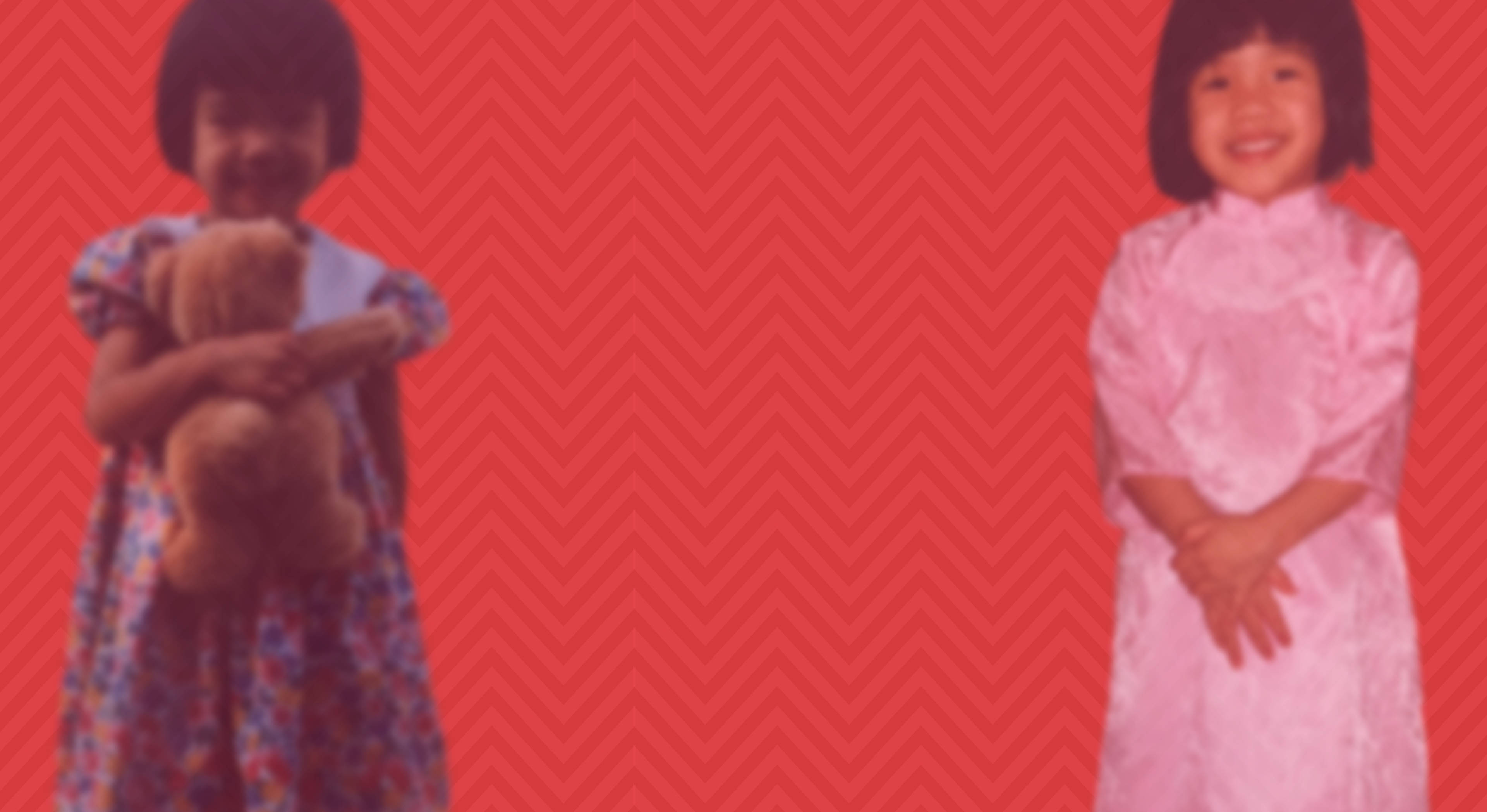As a kid I didn’t see or read about any characters who called their parents Ba and Mẹ instead of Dad and Mom. I never saw signature items from my household: a rice cooker, straw brooms, Paris by Night DVDs. The hashtag #ownvoices is about writing yourself into existence after years of being silenced, underrepresented, or grossly misrepresented in books, so I wrote to describe my Vietnamese American experience, which I acknowledge is just a sliver of the vast Vietnamese American history.
My Vietnamese family has always been a central part of my life.
Any scenes that involved family were inspired by my own past. For example, whenever my family and I made chả giò (egg rolls) or mì hoành thánh (wonton soup), I was the designated “peeler,” delicately separating thawed wrappers. I made my leading character, Linh, a peeler too. In another scene, a family celebrates a toddler’s one-year birthday by letting her choose from different objects, each representing a career or a path. It’s a ceremony I always like to watch, so I enjoyed incorporating these details into my novel.
On a deeper narrative level, I was fascinated by the complex family dynamics in coming-of-age stories—how some families handle secrets and love a bit differently and how that affects a teen’s growth. While enrolled in a young adult literature class in college, the novels I read focused on the characters’ path to adulthood, yet in doing so, the parents were either erased from the storyline or demonized. I yearned to see more families in these novels.
I hoped to explore the culture of secrets in a family that had undergone wartime troubles, and how that culture affects the next generation.
My Vietnamese family has always been a central part of my life. My mom, aunt, uncle, and two cousins fled by sea after the Fall of Saigon, landed in the Philippines, then arrived in America. They knew little English and had little to live on, yet the surest thing they could count on was family. Family still comes first today.
I hoped to explore the culture of secrets in a family that had undergone wartime troubles, and how that culture affects the next generation. Recently my mom remarked that people of her time prefer not to speak of their emotions—even if it’s happiness. They fear burdening other people. They fear getting lost in memories, when there are more pressing matters to worry about. In some silent moments, my parents might reveal an important encounter from the past that sends my mind into a quick spiral—a revelation, a confession, all said as an afterthought. I was accustomed to these unsaid words; I made room for them in my life. My characters know this too. Gradually, though, they see the toll of secrets on their own relationships and their relationship with their parents.


